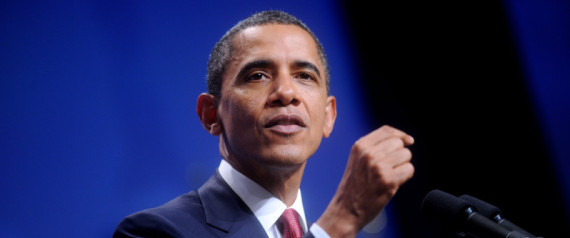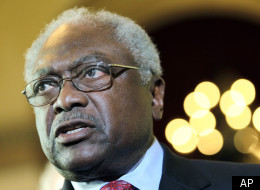
NEW YORK (Reuters) - President Barack Obama says he will not bypass Congress and cite an obscure part of the U.S. Constitution to prevent a government debt default, but legal experts say it would prove difficult to challenge him in court should he change his mind.
Former President Bill Clinton argued last week that the 14th Amendment that states the "validity'' of government debt ''shall not be questioned'' means that Obama could simply ignore the congressionally imposed debt ceiling and go on borrowing.
Obama has indicated he considered the possibility, but on Tuesday his spokesman, Jay Carney, appeared to rule it out.
"The Constitution makes clear that Congress has the authority, not the president, to borrow money and only Congress can increase the statutory debt ceiling. That is just a reality,'' Carney told reporters.
But if the country is about to go into default, the temptation to act to avert calamity will grow. Legal experts say if the president were tempted to act unilaterally he might escape without his actions being overturned in court.
Regardless of how controversial a 14th Amendment maneuver might be, a legal challenge would be very hard to mount and so far, no one has stepped forward to say they would challenge him in court.
Nor has anyone said they would sue him if he took the alternative, equally controversial, step of using his broad authorities as guardian of the constitutional order to unilaterally raise the borrowing threshold.
First Posted: 7/27/11 12:18 PM ET Updated: 7/27/11 03:35 PM ET
WASHINGTON -- House Democratic leaders emerged from a Wednesday Caucus meeting with a message for President Barack Obama: Invoke the Constitution to resolve the debt standoff.
If Congress can't reach a deal on a long-term debt limit increase by August 2, Obama should "sign an executive order invoking the 14th Amendment," said Assistant Minority Leader James Cyburn (D-S.C.).
"I am convinced that whatever discussions about the legality of that can continue," Clyburn said. "But I believe that something like this will bring calm to the American people and will bring needed stability to our financial markets."
House Democratic Caucus Chairman John Larson (D-Conn.) acknowledged that Obama has previously expressed doubts about his legal authority to unilaterally raise the debt limit. But circumstances have changed, Larson said, and "we just want to let him know that his Caucus is prepared to stand behind him" if Congress fails to pass a long-term deal.
"We have to have a fail-safe mechanism," Larson said. "We believe that fail-safe mechanism is the 14th Amendment and the president of the United States."
Section 4 of the 14th Amendment states: “The validity of the public debt of the United States, authorized by law, including debts incurred for payments of pensions and bounties for services in suppressing insurrection or rebellion, shall not be questioned.” Essentially, Democrats are arguing that since the "public debt" cannot be questioned, then the debt ceiling itself is unconstitutional.
Democratic Senators have been eying this option since late June. Sen. Chris Coons (D-Del.), an attorney, predicted at that time the the constitutional option may get "a pretty strong second look as a way of saying, 'Is there some way to save us from ourselves?'"


Posted: 7/26/11 07:30 PM ET